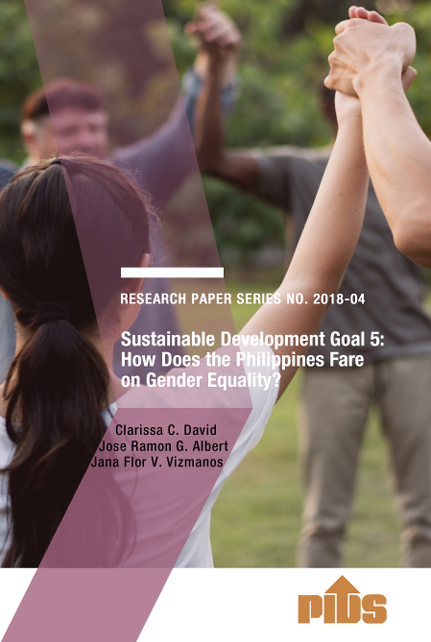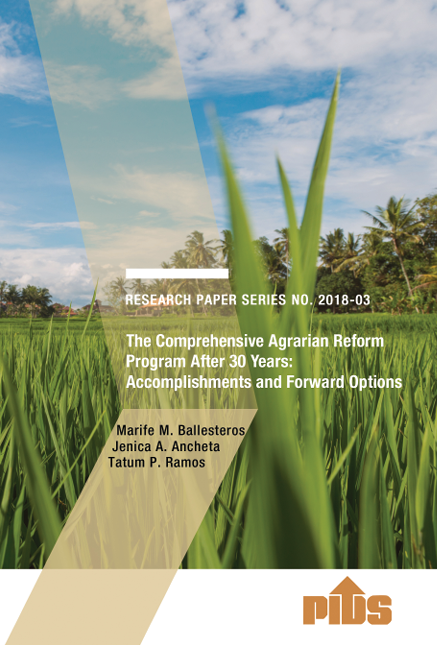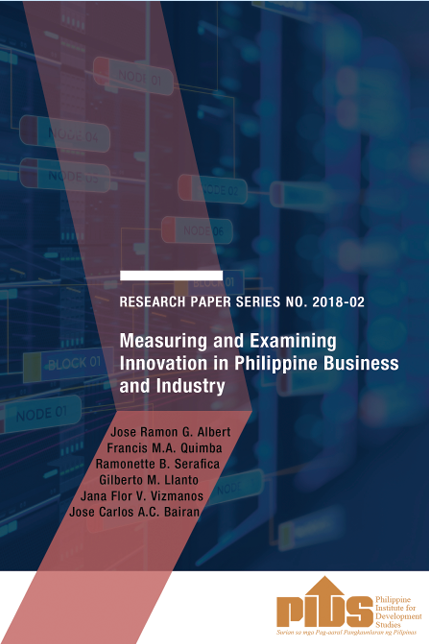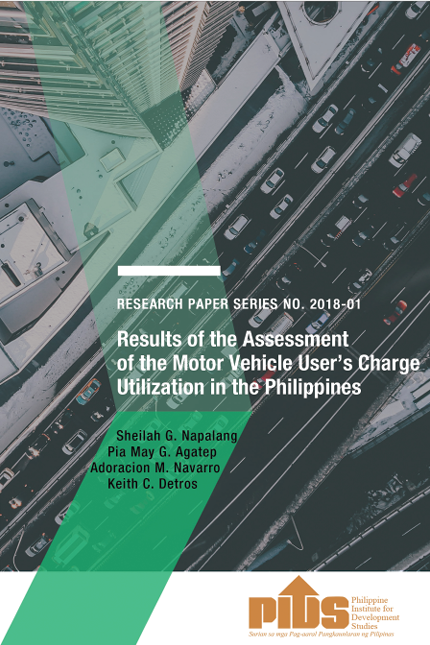PIDS 2018
The Research Paper Series are the final outputs of the research staff. The Series is a formal publication meant to promote research, stimulate discussion and encourage the use of study results. Studies published under this Series have been reviewed by an internal publications review committee and by external referees. Studies are original and have not been published in any form and contain the rationale, framework, methodology, conclusions or recommendations and other relevant information.
-Republic of the Philippines, PIDS
Abstract
The global goal to attain gender equality, including ending all forms of discrimination against women and girls, and ensuring their safety, is central to the achievement of the Sustainable Development Goals. Its attainment means that every person, regardless of sex, is empowered to reach his or her full potential. This entails both men and women being given equal opportunities to education, paid employment, and real decision-making power, whether in the private or public sector. This paper discusses how the country fares in several gender and gender-related indicators that can be used to monitor progress toward gender equality and women empowerment. It provides an overview of the current situation in areas such as equality of human capabilities, equality of economic opportunity, equality in political voice and leadership, and the safety of women and girls. The paper also identifies priorities for public policy while seeking new directions in a number of transformational issues to attain gender equality and women’s empowerment in the country.
Abstract
This study evaluates the performance of the Comprehensive Agrarian Reform Program (CARP) in the last 30 years using the program’s theory of change. The accomplishments of CARP in terms of land reformed area and number of beneficiaries for the past 30 years have been substantial. However, there is evidence that the program has been poorly targeted in terms of areas covered and beneficiaries. Among others, the study also notes that while there is weak evidence of overpricing of the land acquired by the government, the delay in CARP implementation is expected to increase the cost of land acquisition due to increased land/ zonal land prices as a result of urbanization in the countryside. While the implementation of the program may have been flawed, there is no need to redo the CARP. Instead, government should focus on support programs to modernize agriculture benefitting small farmers, i.e., scaling up promising arrangements such as agrarian reform communities, block farming, and agribusiness venture arrangements. On the other hand, issues on land consolidation, land ownership concentration, or land conversions can be better addressed through convergence efforts of land agencies and digitization in land management and administration.
Abstract
Innovation involves implementing new or significantly improved goods and services, production processes, marketing, or organizational methods for adding value. The measurement of innovation provides a mechanism for benchmarking national performance, as well as allows a better understanding of its relation to economic growth. Further, examining determinants and bottlenecks to innovation among firms provides inputs to mainstreaming of policies on innovation. In this paper, results of the 2015 Survey of Innovation Activities (SIA), conducted by the Philippine Institute for Development Studies (PIDS), are described and discussed. Survey results suggest that less than half of the firms in the country were innovators, with larger-sized firms innovating more than the micro, small, and medium establishments (MSMEs). The most common innovative behavior among firms was process innovation. Effects of innovation were observed to be largely customer-driven. Firms identified cost factors as the most important barrier to innovation. Knowledge and cooperation networks for innovation need strengthening. Government support and its role on innovation was also limited. Firms hardly accessed technical assistance from the government and research institutions. Similarly, firms have limited cooperation with the academe in terms of innovation activities. Firms cooperated more internally with establishments within their enterprise, their customers, and suppliers for their innovation activities. Given these issues, the government needs to have a champion for developing stronger policies and interventions to support and encourage innovation. It is also important to improve information dissemination regarding public programs available to assist firms to pursue innovation. Networking, linkages, and collaboration among the government, industry associations, and universities and research institutions also require further enhancement.
Abstract
Road funds like the Motor Vehicle User’s Charge (MVUC) fund in the Philippines are earmarked funds that ensure a stable flow of resources, particularly for public road development projects. However, shortcomings from project identification to fund disbursement hamper effective implementation of the MVUC funding scheme. In assessing the different MVUC processes, this paper finds that transparency and efficiency in collection should be improved through automation and accurate recording. Project identification and investment programming must also adhere to the recommended procedures in the operating manual. As the study finds indications of fund underutilization, it suggests accelerating fund utilization through advance project development and investment programming. Looking at five MVUC-funded projects, it observes that only one of the five projects had an impact monitoring system. Nevertheless, findings from field visits and interviews with beneficiaries reveal that there are positive benefits from the MVUC mechanism. A closer look at successful cases in other countries also reveal good practices that are worth noting.



